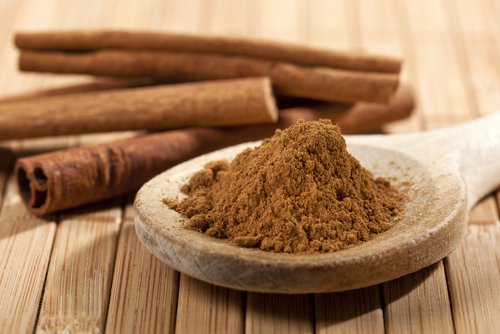Two Ingredients That May Help Regulate Blood Sugar Levels


Reviewed and approved by Doctor Carlos Fabián Avila
Diabetes is a metabolic disease that causes high levels of blood sugar, either due to insufficient insulin production or because the body doesn’t regulate blood sugar levels correctly with the amount of insulin that’s produced.
Leading a sedentary lifestyle and having a poor diet are major causes of this health problem that has spread throughout the world in recent decades. According to multiple studies, there are more than 382 million people suffering from diabetes today, and that number is growing.
You can control diabetes. But it’s important that you commit to a course of treatment. Therefore, you must completely eliminate all kinds of sugary foods that can make your condition worse.
Treatment for diabetes should be tailored to the individual and maintained regularly to ensure that blood sugar levels remain stable. While you’ll need medical treatment and monitoring by your doctor, you can also try some home remedies that may help regulate blood sugar levels.
Two ingredients that may help regulate blood sugar levels
This remedy will use only two very inexpensive ingredients: cinnamon and cloves. Both have been found to have positive results for people with diabetes.
Cinnamon to help regulate blood sugar levels
One recent study found that cinnamon can help people who suffer from type 2 diabetes. The participants in the study consumed cinnamon on a regular basis and found that both their blood sugar and cholesterol levels were reduced.
It would seem that cinnamon helps improve the body’s ability to regulate blood sugar levels and also helps to increase the effectiveness of insulin. Regular consumption of cinnamon helps to activate essential enzymes that stimulate cellular receptors to respond more effectively to insulin production.
Read also:
7 Clues for Detecting Diabetes Early
Cloves to help regulate blood sugar levels
Cloves are a popular spice around the world thanks to the enticing aroma and delicious flavor that they add to recipes. But they’re much more than just a spice. Cloves have some medicinal properties, like the ability to help reduce high levels of blood sugar.
Clove is a spice with some of the highest antioxidant contents; packing 80 mg of vitamin C per 100 grams, in addition to beta-carotene, vitamin E, selenium, fiber, phytosterols, and various essential minerals.
Read also:
How to you improve your blood sugar using cinnamon and cloves

Now that we’ve shown why cinnamon and cloves can help reduce blood sugar levels, it’s time to learn how to make this powerful remedy that may help control diabetes to some extent.
Ingredients
- 4 sticks of cinnamon
- 60 grams of cloves
- 1 liter of water
How do you make it?
Mix all the ingredients in a bowl and store it in the fridge for four to five days. After that time, strain off the liquid and drink half a cup each day.
Side effects
Note that not all people should use this remedy because it could have adverse side effects. If you have diabetes and want to try this remedy, first take note of the following:
- Cinnamon can worsen existing liver problems
- This remedy may significantly help reduce your blood sugar levels, so take extra precautions if you’re already taking other medications or supplements for the same purpose.
- Some varieties of cinnamon contain a compound that may reduce your body’s ability to form blood clots. It’s important to buy your cinnamon from a reliable source to ensure its high quality.
- If your doctor has already diagnosed you with diabetes, it’s important to consult with them before taking this natural remedy.
All cited sources were thoroughly reviewed by our team to ensure their quality, reliability, currency, and validity. The bibliography of this article was considered reliable and of academic or scientific accuracy.
- Diabetes.co.uk. (2017). Blood Sugar Level Ranges. https://doi.org/10.1016/j.bbadis.2016.09.015
- Diabetes.co.uk. (2016). Fasting Blood Sugar Levels. https://doi.org/http://dx.doi.org/10.1016/j.otsr.2010.09.005
- Khan, A., Safdar, M., Ali Khan, M. M., Khattak, K. N., & Anderson, R. A. (2003). Cinnamon Improves Glucose and Lipids of People with Type 2 Diabetes. Diabetes Care. https://doi.org/10.2337/diacare.26.12.3215
- Cortés-Rojas, D. F., de Souza, C. R. F., & Oliveira, W. P. (2014). Clove (Syzygium aromaticum): A precious spice. Asian Pacific Journal of Tropical Biomedicine. https://doi.org/10.1016/S2221-1691(14)60215-X
This text is provided for informational purposes only and does not replace consultation with a professional. If in doubt, consult your specialist.








